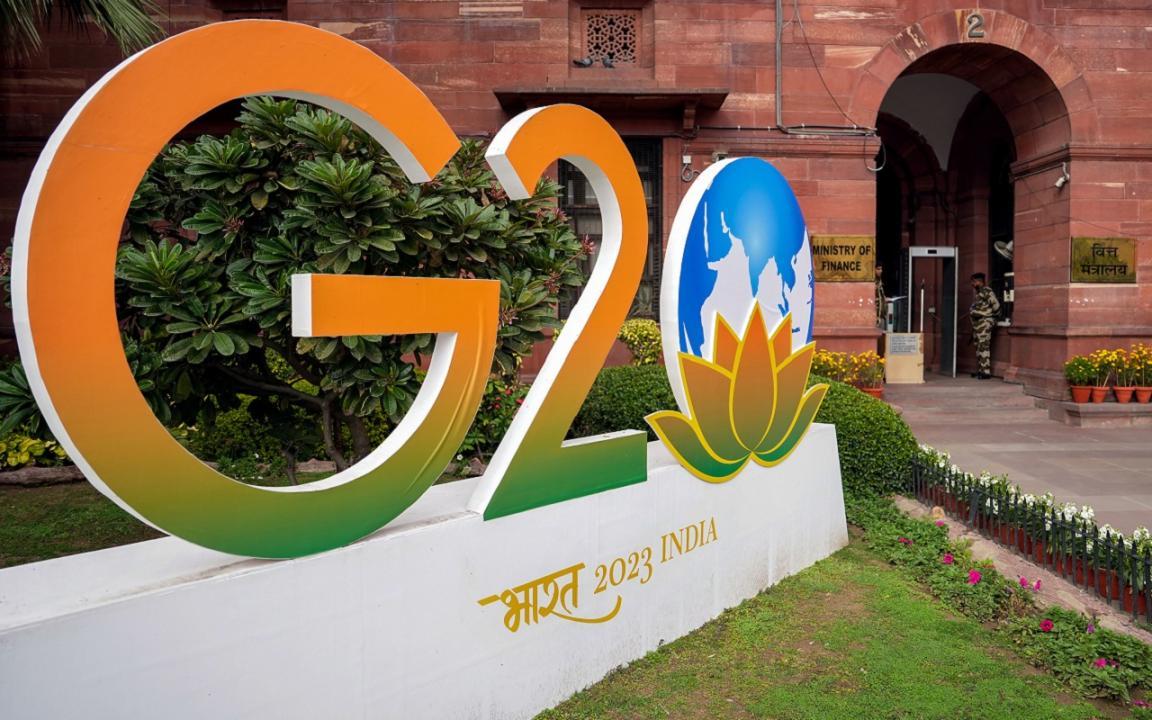India, the current G20 president, cut fossil fuel subsidies by 76 percent between 2014 and 2022 while boosting support for clean energy

Representational Image
G20 countries allocated a staggering USD 1.4 trillion of public funds to support fossil fuels in 2022, aiming to counter the impact of their soaring prices due to the Ukraine war and strengthen energy reserves, a new study says. The study by Winnipeg-based (Canada) award-winning independent think tank International Institute for Sustainable Development (IISD) and partners comes as G20 leaders prepare for their summit meeting scheduled for September 9-10 in New Delhi.
India, the current G20 president, cut fossil fuel subsidies by 76 percent between 2014 and 2022 while boosting support for clean energy. This puts India in a strong position to lead on this issue, the study says. The astonishing sum of USD 1.4 trillion includes fossil fuel subsidies (USD 1 trillion), state-owned enterprise investments (USD 322 billion), and money lent by public financial institutions (USD 50 billion), according to the study.
This total is more than double what was seen before the COVID-19 pandemic and the energy crisis in 2019, it said. Tara Laan, a Senior Associate at IISD and the lead author of the study, said, "These figures are a stark reminder of the massive amounts of public money G20 governments continue to pour into fossil fuels despite the increasingly devastating impacts of climate change."
She stressed that it's urgent for the G20 to address the issue of fossil fuel subsidies at the summit, especially when climate change effects are becoming worse. The G20 has the power and the responsibility to transform our fossil-based energy systems. It is crucial for the bloc to put fossil fuel subsidies on the Delhi Leaders' Summit agenda and take meaningful actions to eliminate all public financial flows for coal, oil, and gas, she said.
Financial support for fossil fuels worsens human-made climate change and its harsh effects, such as more heatwaves, wildfires, and heavy rains. The report underlines that giving subsidies that lower fossil fuel prices is a problem because it encourages more use of these harmful energy sources. The researchers propose a solution: G20 nations could get an extra USD 1 trillion each year by setting minimum carbon taxes ranging from USD 25 to USD 75 per metric ton of CO2 equivalent, based on the country's income.
Current taxes on fossil fuels in the G20 are too low, averaging just USD 3.2 per metric ton of CO2 equivalent. This is worrying because fossil fuel companies made huge profits during the energy crisis last year, according to the report. It also suggests a clear plan to get rid of fossil fuel subsidies: Developed countries should stop them by 2025, and emerging economies should end them by 2030 at the latest.
The authors say that instead of just calling these subsidies "inefficient", there should be specific reasons for keeping them, like when they're needed for energy access. Also, the subsidies should only help those who genuinely need them, not be a poor way of helping people.
The report shows that if the bloc shifts a bit of the trillions spent on fossil fuel subsidies, it could make a big difference. This could help bridge the gap for wind and solar energy (USD 450 billion a year), tackle world hunger (USD 33 billion a year), give clean electricity and cooking methods to everyone (USD 36 billion a year), and help developing nations with climate funds (USD 17 billion a year).
The study underlines that state-owned companies and public financial groups have a big role to play. It says governments should set a clear date for them to make plans to go carbon-neutral which will help them avoid risks tied to investing in fossil fuels.
Tara Laan summed it up, saying, "Fossil fuel companies made big profits during the energy crisis last year, so they don't want to change. But governments can push them in the right direction. G20 countries which account for 85 per cent of the world's GDP and 80 percent of global greenhouse gas (GHG) emissions failed to reach an agreement on key issues crucial for limiting global warming to 1.5 degrees Celsius at the climate ministers' meeting in Chennai last month.These included phasing down unabated fossil fuels, increasing renewable energy, and providing low-cost financing for developing countries.
Earlier in July, the bloc had failed to reach a consensus on tripling renewable energy capacity to 11,000 gigawatts by 2030, phasing down the unabated use of fossil fuels and plans to finance the transition during the Energy Ministerial Meeting. Nations had agreed to phase out "inefficient" fossil fuel subsidies at the COP26 climate summit in Glasgow two years ago.
This story has been sourced from a third party syndicated feed, agencies. Mid-day accepts no responsibility or liability for its dependability, trustworthiness, reliability and data of the text. Mid-day management/mid-day.com reserves the sole right to alter, delete or remove (without notice) the content in its absolute discretion for any reason whatsoever
 Subscribe today by clicking the link and stay updated with the latest news!" Click here!
Subscribe today by clicking the link and stay updated with the latest news!" Click here!








